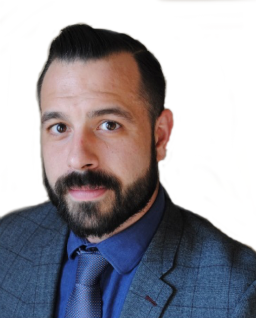Ep. 124, Christopher Dwyer, Ph.D joins host Chris Hadnagy. Dr. Dwyer researches critical thinking and cognitive energy, including what it means to be a critical thinker. He started his Ph.D by researching argument mapping, focusing on the structure of arguments and the effect of it on memory performance. – Dec 09, 2019
Download
Ep. 124 – Cognitive Energy and Critical Thinking with Dr. Christopher Dwyer
Get Involved
Got a great idea for an upcoming podcast? Send us a quick message on the contact form!
Enjoy the Outtro Music? Thanks to Clutch for allowing us to use Emily Dickinson as our new SEPodcast Theme Music
And check out a schedule for all our training at Social-Engineer, LLC.
Check out the Innocent Lives Foundation to help unmask online child predators.
Show Notes

Welcome to another episode of The Social-Engineer Podcast! Host, Christopher Hadnagy, interviews Christopher Dwyer, on this 124th episode. Dr. Dwyer is a psychologist who has been researching critical thinking and cognitive energy throughout his career, including what it means to be a critical thinker. He started his PhD by researching argument mapping, focusing on the structure of arguments and the effect of it on memory performance.
Chris asks Dr. Dwyer how he would define critical thinking. For Dr. Dwyer, the term refers to purposeful, self-regulatory reflective judgment reliant on a number of skills in order to produce a valid conclusion to an argument or a solution to a problem. Dr. Dwyer explains how the term has come to have different meanings across the industry – but the main idea has been that core skills and core dispositions make up critical thinking. Dr. Dwyer is interested in how to enhance people’s critical thinking skills; however, he has found that it is very dependent on context and circumstances. He shares an example of this, comparing findings about critical thinking of traditional students and adult-learning course students. The mature students had worse critical thinking at the beginning of a class yet they improved more than traditional students over time.
Chris asks how critical thinking can be used to reduce arguments. Dr. Dwyer shares that arguing can be a good thing and we need arguments as they promote problem solving. Arguments should be motivated by the purpose to learn something new. When people argue to win or be right, they are not using critical thinking skills like if you were arguing to teach someone or to learn something new yourself. It is important to not just assess what is being said in an argument, but in order to think critically, it is essential to also be open to learning and potentially changing your mind on a topic. Chris summarizes that the goal of a debate determines whether critical thinking is being used or not being used, and that will also determine if an argument is beneficial. Dr. Dwyer shares how difficult it is to not lose sight of the goal of the conversation. If someone is not willing to argue with the goal to learn or with an open mindset, it’s time to question why you are still engaging in the debate.
After a brief break where Chris shares some exciting upcoming 2020 events, Chris asks Dr. Dwyer the best way to replenish cognitive energy. Dr. Dwyer, still trying to find a great way himself, suggests having a good sleep and also taking it easy prior to the energy consuming task or activity. Though Dr. Dwyer has not researched how to increase cognitive energy capacity, he has read much concerning decision fatigue, referencing Dr. Roy Baumeister who has done a considerable amount of research about that topic. Chris suggests that it is necessary to schedule your day in order to make sure that we do not exceed our cognitive energy so good decisions can be made properly.
Towards the end of the episode, Chris and Dr. Dwyer discuss how humans hate to be wrong, but love to be right. Dr. Dwyer says that this is due to risk aversion – we do not enjoy the things that are detrimental to us and we fear being found wanting. However, it is important to not let our fear stop us from critically thinking well.
Links:
Check out Dr. Chris Dwyer’s blog, Thoughts on Thinking on psychologytoday.com
Find Dr. Dwyer on Twitter @CogitoErgoDwyer
Read Dr. Dwyer’s book, Critical Thinking: Conceptual Perspectives and Practical Guidelines
Dr. Dwyer recommends reading:
Thinking, Fast and Slow by Daniel Kahneman
Thought and Knowledge: An Introduction to Critical Thinking by Diane F. Halpern
Follow Chris and The Social-Engineer Podcast on Twitter @HumanHacker
Upcoming Events:
February 20th – 22nd: Human Hacking Conference in Orlando, register at: sevillage.org
March 16th: Advance Practical SE Course in Orlando
June 1st – 5th: Advanced Practical Social Engineering Training, Bristol









